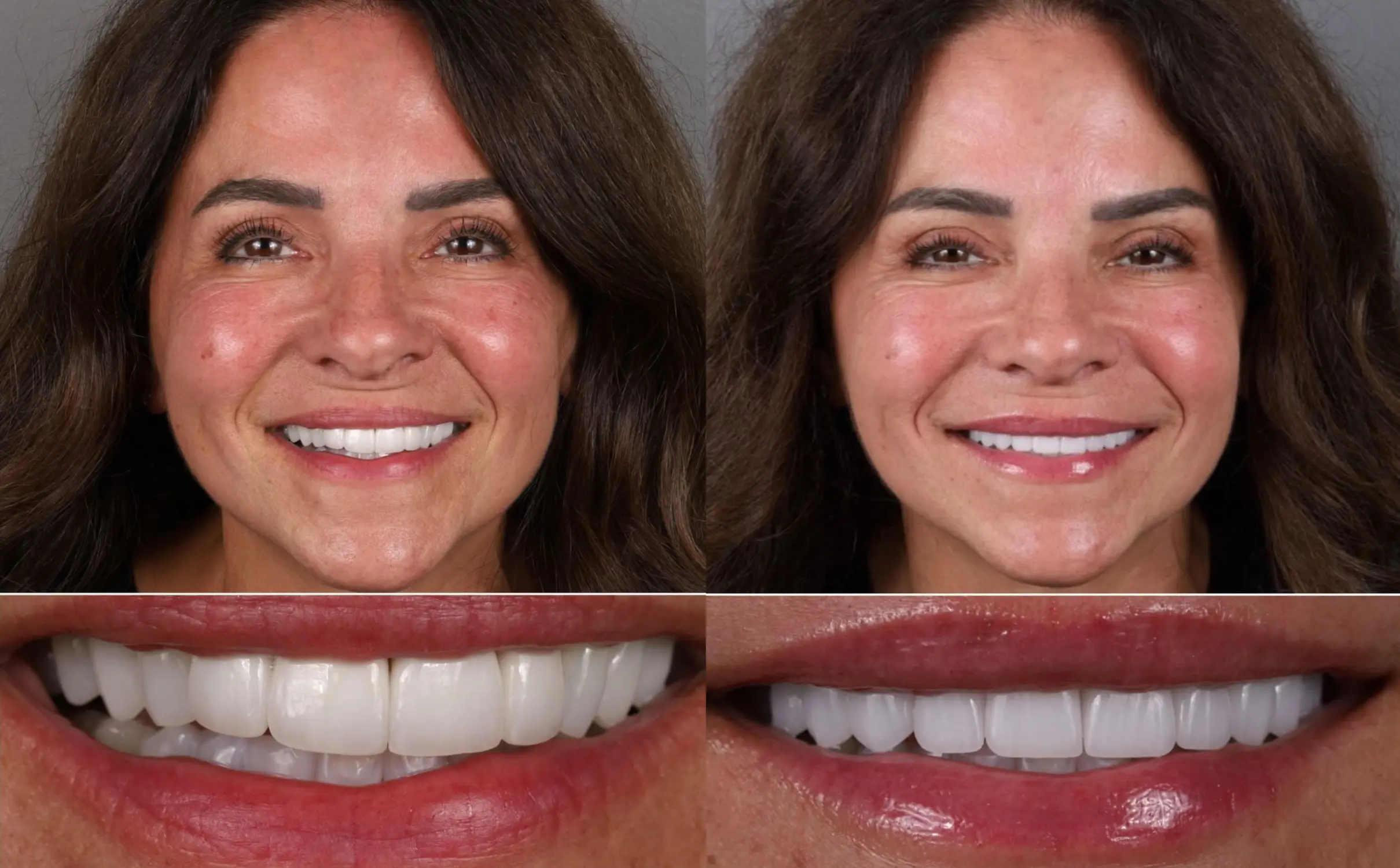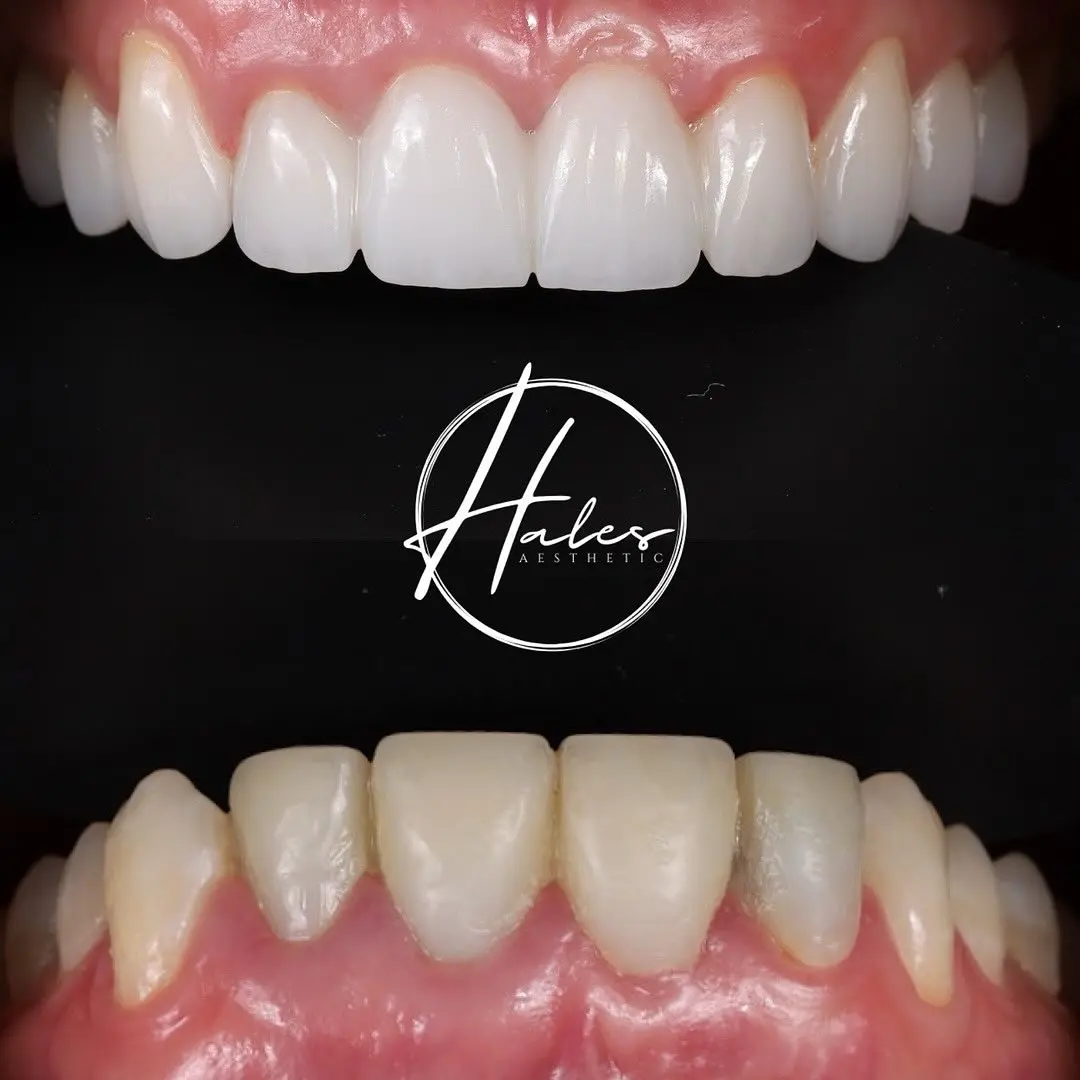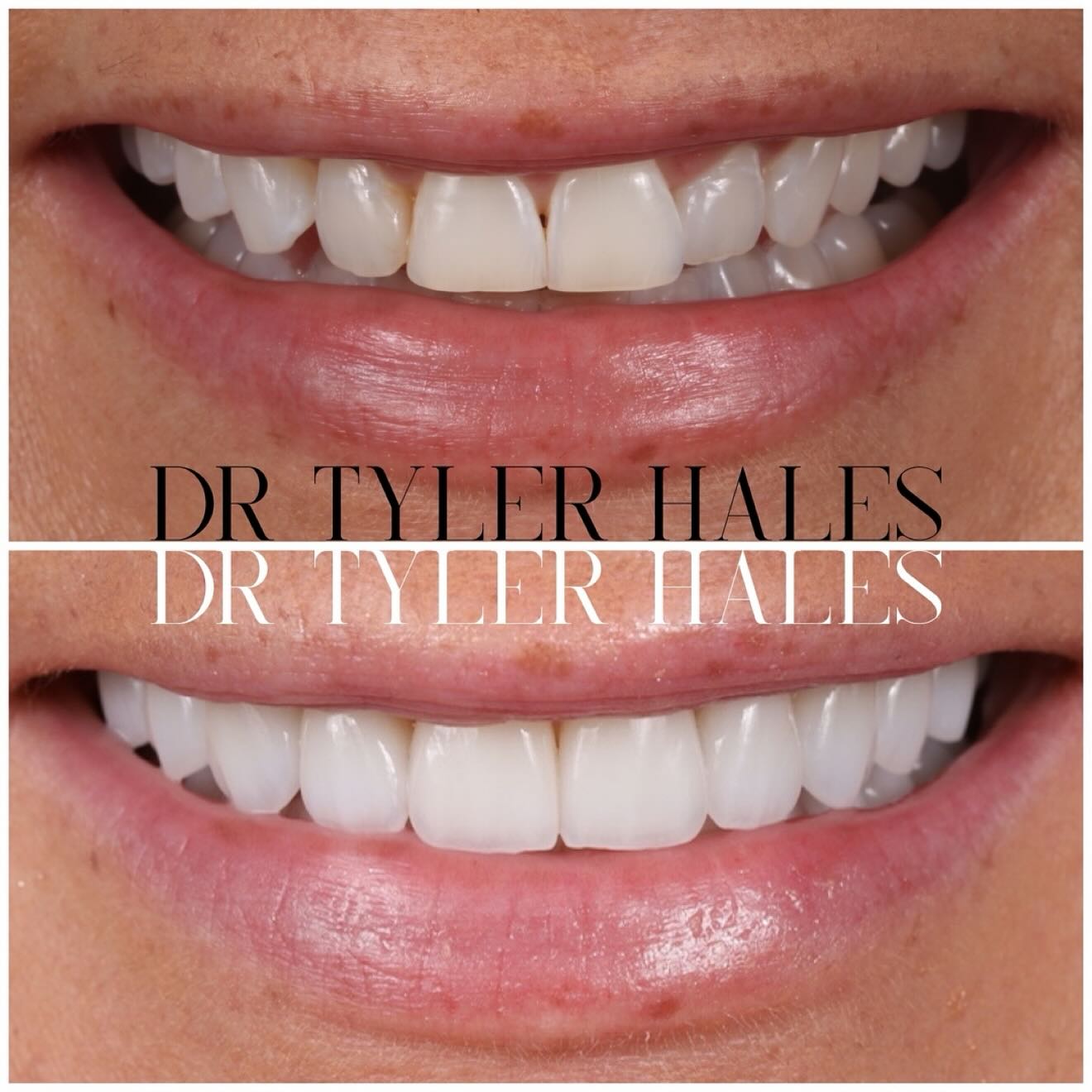In the world of cosmetic dentistry, veneers have emerged as a preeminent solution for a beautiful smile. They offer a transformative remedy for a range of dental imperfections, from discoloration to gaps between teeth. Thanks to cosmetic dentistry, achieving that perfect set of teeth is more accessible than ever. Let’s explore the different types of veneers and how they cater to diverse cosmetic and oral health needs.
Types of Veneers
As you do your research on the types of veneers there are available for you, we’ve gathered and captured five main types. At Hales Aesthetic, we offer four of these types of veneers. If you are new to your research and are unsure what veneers are, check out What Are Veneers guide where we dive into what they are made of to how they work and who would benefit from them and more.
Porcelain Veneers: The Durable, Stain-Resistant Choice
When it comes to traditional veneers, porcelain reigns supreme. Known for their durability and stain-resistant properties, porcelain veneers are custom-made, tooth-colored shells crafted to cover the front teeth, offering a natural-looking and permanent restoration. Their lifespan often extends beyond a decade, making them a preferred option for a long-term smile makeover.

Composite Resin Veneers: A Versatile and Economical Alternative
Composite veneers are sculpted directly onto the tooth surfaces using composite resin. This type of veneer can be a cost-effective and minimally invasive option, often completed in a single dental visit. They allow for a significant transformation, rectifying issues such as minor discoloration and chips. However, they typically have a shorter lifespan than their porcelain counterparts and may not be as resistant to stains.
No-Prep Veneers: The Minimally Invasive Option
Lumineers represent a subset of porcelain veneers known as ‘no-prep’ veneers. They are ultra-thin and require little to no tooth preparation, meaning that your natural tooth enamel remains largely intact. This type of dental veneer is an option for those who want a beautiful smile without the anxiety of extensive dental work; however, not every patient is a candidate for no-prep veneers.

Minimal Prep Veneers
Our minimal prep veneers are carefully crafted to ensure the utmost preservation of your natural tooth enamel, making them the perfect choice for those who prioritize maintaining their tooth structure. Unlike other veneer options, these veneers involve minimal enamel removal, but it’s worth noting that some gentle shaping is frequently necessary to achieve the best results.
These veneers excel in addressing minor gaps between teeth, offering an effective solution to enhance your smile. To determine whether no-prep veneers are the right choice for your dental needs, it’s wise to have a discussion with your trusted dentist. They can evaluate your unique situation and provide tailored recommendations for your optimal dental transformation.
Snap On Veneers
On the other hand, removable veneers, like snap-on veneers, provide a non-permanent solution, for those seeking a cosmetic boost that is inexpensive and quick. To be fully transparent, this option is not one that is recommended in the dental community. Pop-on veneers are not a viable long-term or quality solution for cosmetic concerns. With the time you put into coming to and from the dental office and having your teeth molded, the longevity is non-existent for this type of veneer.
Choosing the Right Veneer for You
The decision to opt for dental veneers involves considering factors like veneers cost, desired results, and your current oral health. A consultation with a cosmetic dentist is essential to determine whether you’re a candidate for veneers, the type that would best suit your needs, and whether you require other dental care procedures, such as teeth whitening, fillings, or dental crowns.
Caring for Your Veneers
Maintaining veneers is similar to caring for your natural teeth. Regular dental care, avoiding habits that can damage your veneers, and attending dental check-ups can ensure the longevity of your cosmetic restorations. Remember, while veneers are resistant to stain and decay, the gum tissue around them is still susceptible to gum disease.

Choosing the Right Type of Veneers for Your Smile
Selecting the right type of veneers is a personalized process. While the primary purpose of veneers is to create a beautiful smile, they also play a crucial role in preserving the health of natural teeth by providing a protective layer against further decay or damage. A cosmetic dentist will consider factors such as the degree of discoloration, the condition of your oral health, and your desired outcome.
In Conclusion
Veneers, whether porcelain, composite resin, or no-prep , offer diverse solutions tailored to individual needs. Different types of veneers ensure that anyone looking to enhance their smile can find a suitable option. With advancements in dental materials and procedures, achieving that high-quality, natural-looking smile is easier and more comfortable than ever.
In the end, investing in veneers is not just about cosmetic dentistry; it’s about investing in your smile, your confidence, and your oral health. A consultation with a professional cosmetic dentist will set you on the path to the smile makeover you’ve always desired.






